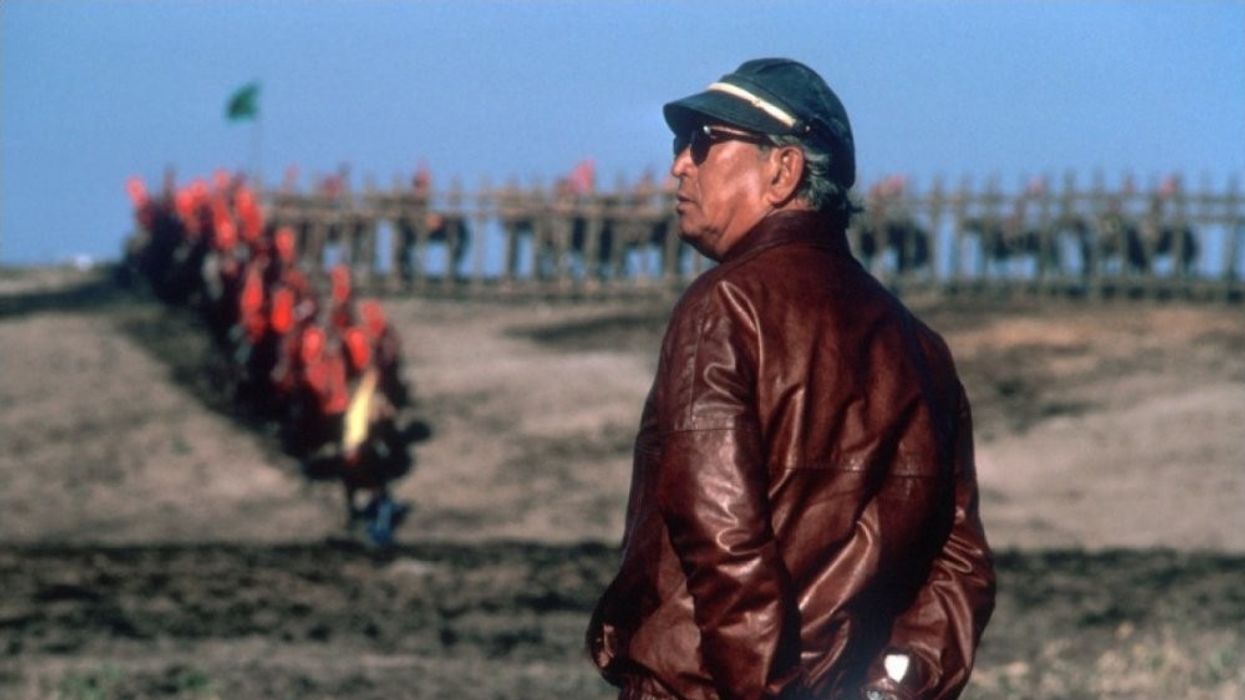10 Filmmaking Tips from Akira Kurosawa
Kurosawa is one of the most breathtaking directors of all time.

When you sit for an Akira Kurosawa film, it's a meditation on story and character, and always contains some of the most beautiful shots you've ever seen.
Kurosawa was a Japanese filmmaker and screenwriter who wrote and directed 30 films in a career spanning over five decades. He is regarded as one of the most important and influential filmmakers in film history. His disciples are everywhere. Every modern filmmaker learned from his films and aesthetics.
Kurosawa directed approximately one film per year throughout the 1950s and early 1960s, including Ikiru (1952), Seven Samurai (1954), and Yojimbo (1961).
It would be nearly impossible to pick a favorite among them, but all contain valuable lessons for filmmakers at every level.
Check out this video from Outstanding Screenplays, and let's talk after.
10 Filmmaking Tips from Akira Kurosawa
1. For writers, the most essential thing is the forbearance to face the dull task of writing one word at a time.
Writing can be a bit of a drag, but pulling the words out of your heart and onto the page is necessary for every filmmaker. We often judge ourselves by how fast we get things done, but at the end, the only real thing that matters is how good it is.
2. Choosing what film to make is like sowing seeds—depending on the time and social situation, some seeds sprout all of a sudden. You can't force them.
Don't force any project. Be open to being patient and choosing wisely. Making a bad movie because it can happen fast is not a great reason to be in this business, and you'll be out in no time.
Grow the project that matters to you.
3. Making films costs a lot of money, but all you need for writing a screenplay is a pen and paper.
This is one thing I feel like I tell all aspiring filmmakers. You don't have to write professionally, but you should at least try to put pen to paper to test it out. Really learn structure and character so that you can see the work that goes into writing.
Also, it's free to fail!
4. The theme alone doesn't explain all the sensitive details of human feelings. So stating the aim or message of the movie before making it would work against that.
Theme is one of those tricky things you find along the way. Try to identify it in the screenplay and then work to direct your vision with unique ways to pull it out for the audience.
5. When you're climbing mountains, the first thing you're told is not to look at the peak. Writing is the same—start at the bottom and put one foot in front of the other.
Everyone starts on page one with a blank screen. Not even the greatest screenwriters have an advantage there. Don't look toward page 100, look at page one.
6. Pay attention to the details. The audience might not notice everything, but they will feel it.
Always consider what you can layer into each scene. What details can you add to the background, dialogue, the character that makes the theme and story pop? How can you make the audience feel like you're in control of their experience, without being too overt about it?
7. Creating comes from memory. You can't create something out of nothing. Form memories from things you experience or read about.
Your work will always carry your influence. Your visuals and words are pieces of your human experience. Try to understand the motivations and story by knowing which parts of you are on the screen and how you identify with the characters in the story.
8. Always think of your next project as the one people will remember you by.
Stay hungry. While this business is all ups and downs, keep working hard to make the next thing better. Make the next thing something that clearly defines your goal as a filmmaker. Work hard on every project, but bring more to the next one.
9. When you write, write all the way. If you give up once, giving up will become a habit.
I always say, don't write anything you don't know the ending to, because you can get lost on the way. But if you see the ending, don't quit either. It's much easier to rewrite and rework a story. If you just have something on paper, and have no idea where it's going, then you might quit. Quit once, and it will always be attractive for you to quit more.
10. Adapt characters, plot, and dialogue from real life.
Carry a notebook everywhere. Jot down names, snippets of dialogue, ideas, people, and their actions. Crib as much as you can from what you see. Your characters will seem natural, will have behaviors we understand, and you can ground any story in reality.
Source: Outstanding Screenplays











